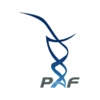PAF Attends 16TH Abbott Nutrition Metabolic Conference
Advances in Management of Inherited Metabolic Disorders
March 23-25, 2017
By Marisa Cotrina, PAF board member
Summary
Abbott Nutrition invited Propionic Acidemia Foundation (PAF) to attend the annual nutrition metabolic conference this past March in the Isle of Palms, South Carolina. This conference brings together dietitians from around the country and Canada to discuss the advances and the challenges in the treatment of inherited metabolic disorders.
I had the honor to attend the conference on behalf of PAF and was very impressed by how well organized the dietitian community is and the diversity of initiatives they are constantly chasing to enhance communication for better dietary management of IMDs. However, the talks and discussions that took place at the conference also evidenced the need for more uniform and universal treatment guidelines. Two talks were of particular interest for propionic acidemia (PA) patients. Dietitian Elaina Jurecki presented the new evidence-based nutrition guidelines that were just finalized for the PA community; an initiative that started several years ago in collaboration with some of the best dietitians in the country and that is finally panning out in these series of guidelines that, hopefully, will make management of PA more uniform and effective in the USA.
For those dietitians new to PA, Dr. Loren Pena presented in a very clear and concise style the metabolic bases for understanding and treating PA. I was very grateful to see how Dr. Pena kindly advocated for the PA community and highlighted the role PAF and the patient organizations play in supporting new research initiatives to advance PA therapies. In this regard, I hope the excellent talk from Dr. Melanie Gilinghan on how to get started in clinical research sparked new ideas and interest in the audience to improve metabolic management and treatment through patient-directed clinical trials.
Among the talks for other disorders, it was very educational to listen to the panel of adult patients with PKU, and the need for nutrition and psychological counseling strategies for adults with metabolic disorders: how to deal with life in college, having children, dealing with brain fog when diet is not adjusted, communicating effectively with your partner and colleagues when feeling sick… Also in the arena of adult patients, Dr. Kiaer, from Denmark, described her journey on treating PKU adults with late diagnoses and discussed how, even in the case of adults with substantial brain damage, there is still opportunity for treatment to improve to some degree brain function and, more importantly, quality of life.
The topic of liver transplantation and how effective it may be in reversing and/or preventing metabolic damage was discussed in the context of MSUD with dietitian Melanie Reeves. It was clear from this talk the urgency to publish more data on liver transplantation from all the transplant units in the country so that patients and clinicians can make a more educated decision about the risks and benefits of this approach for the long-term management of metabolic disorders.
I also had the opportunity to learn about new innovations in the treatment of metabolic disorders: Telemedicine in the developing world with Dr. Hans Andersson, the metabolic diet app with nutritionist Alette Giezen, and inborn errors in the genomic era with Dr. Neil Lamb, an excellent 101 talk on what genomics is, and how we can apply it to diagnose and better understand inborn errors of metabolism.
Last, Dr. Mark Korson moderated an exercise with team ChoP and team Oregon to discuss two crucial topics in our community: 1) can metabolic disorders be managed without medical formulas?, and 2) when is it cost effective and ethically appropriate to include metabolic disorders in NBS? Although the discussions were not necessarily the professional views of the presenters, the arguments utilized were all based in real life cases. Excellent presentations from both teams and fantastic discussion.
Dietitians are a critical line of defense in the chronic management of PA, and we need to listen and work with them as much as with our medical doctors. Overall, a great learning opportunity for PAF
